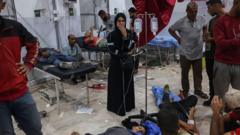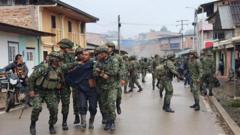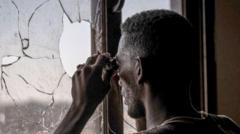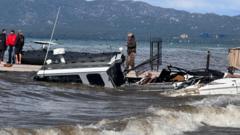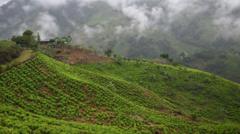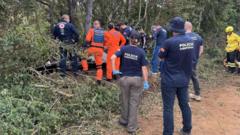In the wake of recent attacks in Syria's coastal area, volunteer rescue crews known as the White Helmets have intensified their efforts to assist victims from all backgrounds, emphasizing their humanitarian focus amid political tensions.**
White Helmets Continue Life-Saving Efforts Amidst Renewed Violence in Syria**
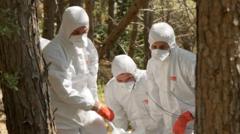
White Helmets Continue Life-Saving Efforts Amidst Renewed Violence in Syria**
As violence escalates in Syria's coastal regions, the White Helmets rescue workers remain committed to aiding all civilians, regardless of sectarian and political affiliations.**
The Syrian civil defense group, the White Helmets, have arisen as a symbol of hope amidst the renewed violence in Syria's coastal regions, where brutality has left communities devastated and in crisis. With reports of mass killings allegedly in retaliation against Syrian security forces, these volunteers are stepping up their response to help civilians in need, conducting as many as 30 operations daily.
The organization, which has been recognized for its humanitarian efforts throughout the country's civil war, aims to serve all Syrians irrespective of religious or political affiliations. Abdulkafi Kayal, the head of the White Helmets’ operations in these coastal areas, articulated this commitment, stating, “When we go to rescue someone in need, we don’t ask them about their religion or political opinion.”
With the recent violent outbursts marking the worst period since the interim regime took over following the overthrow of former President Bashar al-Assad, tensions have flared—a turning point ignited by the murder of 14 interior ministry personnel and subsequent revenge killings of Alawites, Assad's sect. Reports from monitoring groups indicate that over 1,400 civilians have lost their lives amid this chaos, with insufficient verification of the sources of these attacks.
The White Helmets not only focus on immediate rescues; they have also been recovering the deceased from violent clashes, gaining recognition for their work despite facing substantial backlash from the regime, which previously branded them as terrorists. Kayal emphasized, “We are Syrians... it is our homeland, and we consider ourselves as an umbrella to serve all Syrians.”
Following the recent resurgence of violence, the White Helmets were instrumental in retrieving bodies from mass graves, an indication of the brutality that has unfolded. Statements from various individuals reflect the personal toll of the turmoil, with families recounting the loss of loved ones amidst government reprisals.
This week, while the White Helmets were on the ground in Tartous responding to reports of a massacre in Barmada, the tension was palpable. Claims made by various parties point to a cycle of revenge that could spiral into further conflict, underscoring the importance of investigations and accountability to prevent a vacuum of chaos.
In the face of a potentially escalating civil war, interim President Ahmed al-Sharaa has initiated measures to address these grievances, setting a precedent for new governance structures that promise to uphold the rights of all citizens, including the Alawites, who fear for their safety.
As Syria continues to grapple with its complex and blood-soaked landscape, the White Helmets remain steadfast in their mission, striving to save lives in a country yearning for stability, care, and peace.






